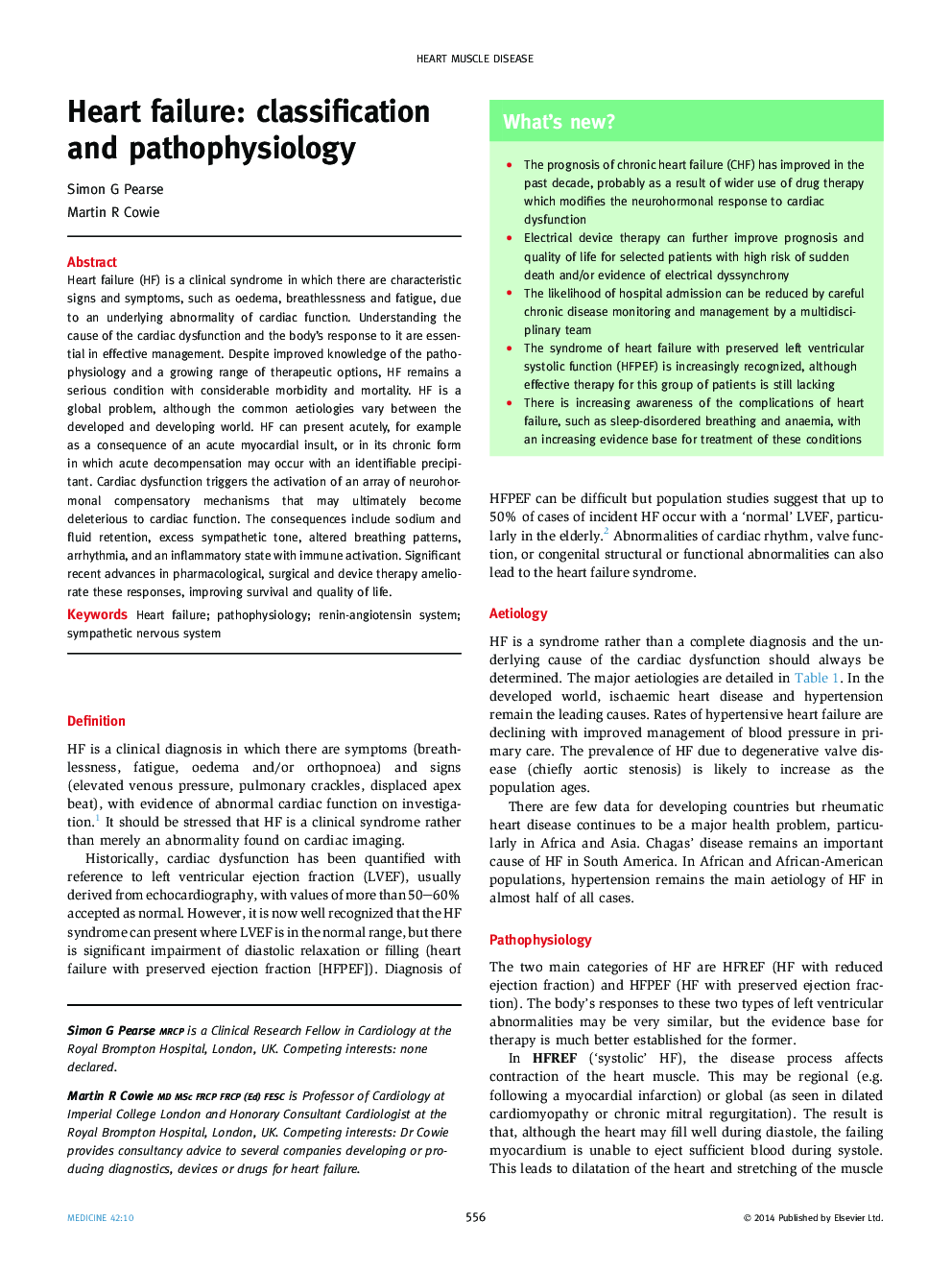| Article ID | Journal | Published Year | Pages | File Type |
|---|---|---|---|---|
| 3804715 | Medicine | 2014 | 6 Pages |
Heart failure (HF) is a clinical syndrome in which there are characteristic signs and symptoms, such as oedema, breathlessness and fatigue, due to an underlying abnormality of cardiac function. Understanding the cause of the cardiac dysfunction and the body's response to it are essential in effective management. Despite improved knowledge of the pathophysiology and a growing range of therapeutic options, HF remains a serious condition with considerable morbidity and mortality. HF is a global problem, although the common aetiologies vary between the developed and developing world. HF can present acutely, for example as a consequence of an acute myocardial insult, or in its chronic form in which acute decompensation may occur with an identifiable precipitant. Cardiac dysfunction triggers the activation of an array of neurohormonal compensatory mechanisms that may ultimately become deleterious to cardiac function. The consequences include sodium and fluid retention, excess sympathetic tone, altered breathing patterns, arrhythmia, and an inflammatory state with immune activation. Significant recent advances in pharmacological, surgical and device therapy ameliorate these responses, improving survival and quality of life.
